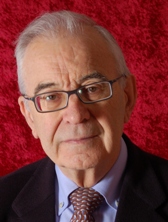Background
In 1971, Dr. Fernando Díaz Esteban, Professor of Hebrew Philology at the University of Barcelona, founded the Institute of Oriental Studies, with the intention of making it a center dedicated to research into the civilizations of the Near East in Antiquity. In the late 1980s and early 1990s, his successor in the chair of Hebrew Philology, Dr. Gregorio Del Olmo Lete, promoted the renewal and expansion of this institution and in 1993 the Generalitat de Catalunya approved the creation of the new Institute of Ancient Near Eastern Studies (IEPOA) with an inter-university character and two sections, one at the University of Barcelona and the other at the Universitat Autònoma de Barcelona.
The Institute’s main objective is research and postgraduate teaching in the three main areas of Ancient Oriental studies: Egyptology, Assyriology, and Eastern Indo-European studies. Members of the two sections of the IEPOA work on various reserch projects, individual and collective, most of them publicly funded, others privately sponsored; they conduct archaeological excavations in Egypt and Syria; they have organized congresses in all three disciplines (e.g: Syntaxe des langues indo-iraniennes anciennes, May 1993, UB; Archaeology of the Upper Syrian Euphrates, January 1998, UB; II Congreso Ibérico de Egiptología, March 2001, UAB; 56 Rencontre Assiriologique Internationale, July 2010, UB); and have launched various journals and series of specialized publications and translations of texts into Spanish and Catalan (Aula Orientalis, Aula Orientalis-Supplementa, Aula Ægyptiaca-Studia, Pliegos de Oriente, Clàssics Orientals, Barcino. Monographica Orientalia). In addition, since its creation, the Institute has offered several postgraduate degrees in three specialties it focuses on, and has encouraged the return to Catalonia of prestigious specialists of Catalan or Spanish origin who were working abroad, such as the Sumeriologist Dr. Miquel Civil, the Egyptologist Dr. Jesús López, the Indo-Europeanists Dr. Rogelio Lemosín and Dr. Eric Pirart and the Semitist Dr. Javier Teixidor. These degrees are a unique initiative in the Catalan and Spanish university scene.
The IEPOA section of the Universitat Autònoma de Barcelona began its activity in the academic year 1992-93. The first director and secretary of this section were Dr. Jordi Cors and Dr. Agustí Alemany, then lecturers in the Department of Classical Philology. The other founding members were Dr. Josep Montserrat (Department of Philosophy), Dr. José Fortes (Department of Classical Philology), Dr. Omar Ouakrim (researcher attached to the area of Linguistics of the Department of Hispanic Philology); Dr. Josep Cervelló (then external Egyptologist); Dr. Ignacio Márquez and Dr. Lluís Feliu (then external Assiriologists). From 1992 to the present, successive directors of the IEPOA at the UAB have been professors Jordi Cors, José Fortes, Josep Montserrat, Jordi Cors again, and Josep Cervelló (current director).
Between the academic years 1992-93 and 2008-09, the IEPOA of the UAB offered several postgraduate degrees that followed one after the other: Master’s Degree in Oriental Studies: Egyptology and Assyriology (3 years) soon transformed into a PhD in Oriental Studies: Egyptology and Assyriology (3 years); Postgraduate Diploma in Egyptology combined with a Marter’s Degree in Egyptology (3 years in total); and PhD in Egyptology.
From the academic year 2009-10, the postgraduate teaching offer in Egyptology at the UAB was adapted to the guidelines of the European Higher Education Area (EHEA). New degrees were launched, some of them official and some of them in-house. The official degrees ceased to depend organically on the Institute and became dependent on the Faculty of Philosophy and Letters of the UAB. These are the University Master’s Degree in Ancient Egyptian Languaje and Civilization (biennial, 90 credits) which, from the 2015-16 academic year, became the current University Master’s Degree in Egyptology (biennial, 120 credits). The former PhD in Egyptology was merged with the PhD programme of the Department of Ancient and Middle Ages Sciencies to give rise to the new PhD in Ancient and Middle Ages Sciencies, which has a line of research in Egyptology and Near Eastern Studies (see Teaching).
As far as the Institute’s in-house degrees are concerned, they continue to depend organically on the Institute and are entirely online. These include the Postgraduate Diploma in Ancient Egypt: Spaces, Languages, Identities (annual, 30 credits), 10 specialization courses on different subjects, and 3 MOOCs taught on the Coursera-UAB platform (see Teaching).
In the field of research, the IEPOA of the UAB has developed, from 2006 to the present, numerous R+D+I projects on Egyptology funded by public or private entities, whose PI has been Dr. Josep Cervelló; it has also supported projects of the Department of Ancient and Middle Ages Sciencies on Indo-European, Egyptological, and Assyriological topics, whose PIs have been, respectively, Dr. Agustí Alemany, Dr. Joan Oller, and Dr. Jordi Vidal (see Institute Members Research). The IEPOA has also signed several research agreements with different national and foreign institutions for the developement of projects or the training of researchers.
The IEPOA of the UAB publishes the Egyptology series Aula Aegyptiaca-Studia and has promoted the creation of an Egyptology section within the Humanities Library of the UAB, partly through the donation of private bibliographic funds of its researchers to the university.


